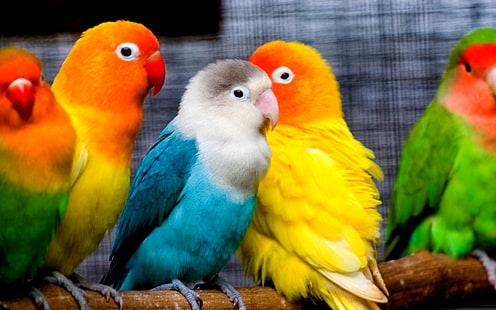
Parrots are highly intelligent and social birds that can form strong bonds with their owners. They require a lot of mental stimulation, exercise, and social interaction to stay healthy and happy. They are also known for their vocal abilities, and many species can mimic human speech, as well as sounds from their environment.
Despite their popularity as pets, parrots are facing a number of threats in the wild, including habitat loss, illegal trade, and climate change. Conservation efforts are underway to protect these fascinating and charismatic birds and their natural habitats.
Special foot Structure
Types of Parrots
There are more than 350 species of parrots exist, which can be generally classified into three groups: macaws, cockatoos, and parakeets. Here is a brief overview of some of the most common types.-
Macaws
These are the largest types of parrots, and they are known for their vibrant colour and long tails. Some of the most popular species of macaws include the blue-and-gold macaw, scarlet macaw, and green-winged macaw.
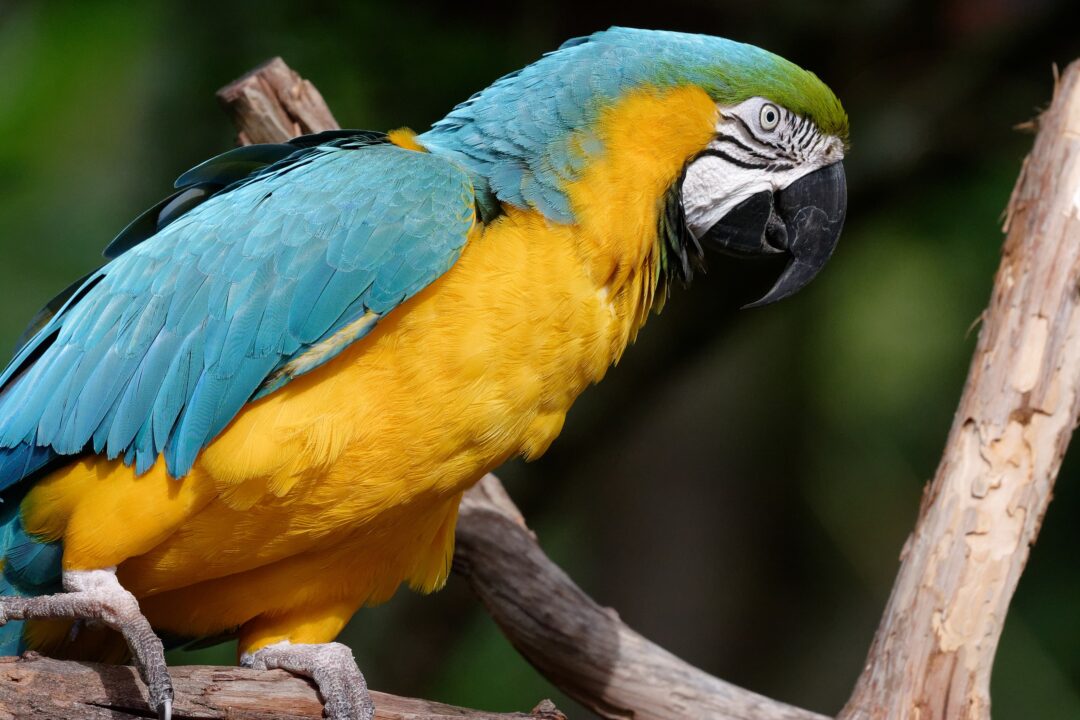
Cockatoo
Cockatoos are known for their distinctive crests and their sociable personalities. Some of the most popular species of cockatoos include the sulphur-crested cockatoo, rose-breasted cockatoo, and umbrella cockatoo.
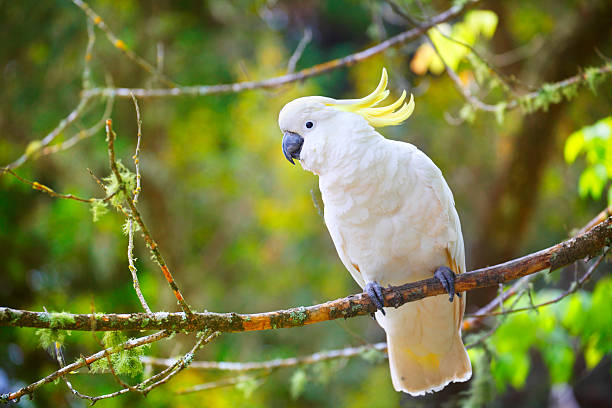
Parakeets
Parakeets, also known as budgerigars, are small to medium-sized parrots. They are popular as pets due to their playful and social nature. Some of the most popular species of parakeets include the budgerigar, Alexandrine parakeet, and Indian ring neck parakeet.
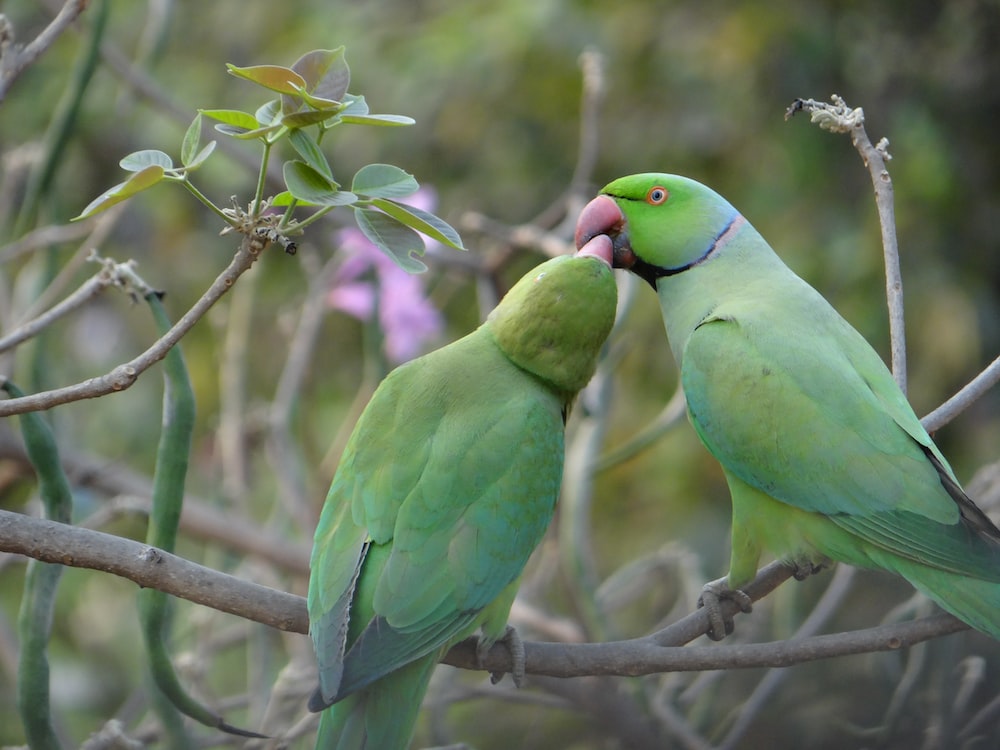
Amazon parrots
Amazon parrots exhibit playful personalities and are capable of mimicking human speech. Some of the most popular species of Amazon include the blue-fronted, yellow-crowned, and double yellow-headed.
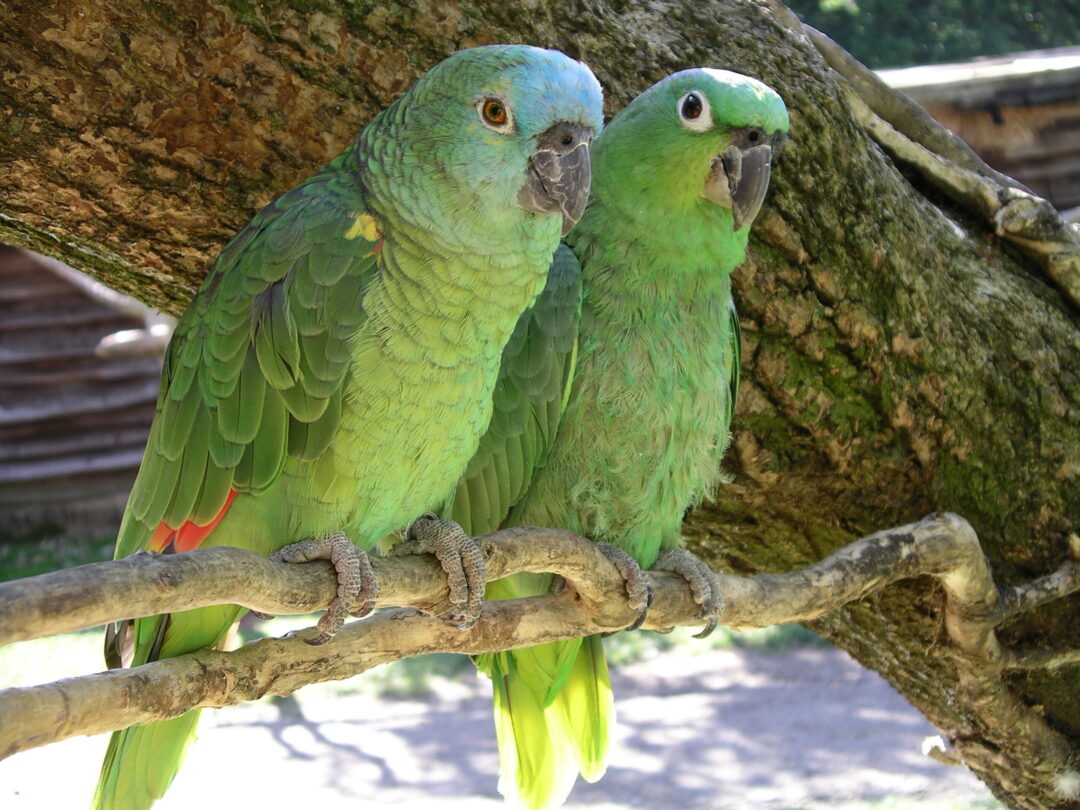
African Grey Parrots
African grey parrots are known for their high intelligence and their ability to mimic human speech with remarkable accuracy. They are medium-sized birds and are native to the rainforests of West and Central Africa.
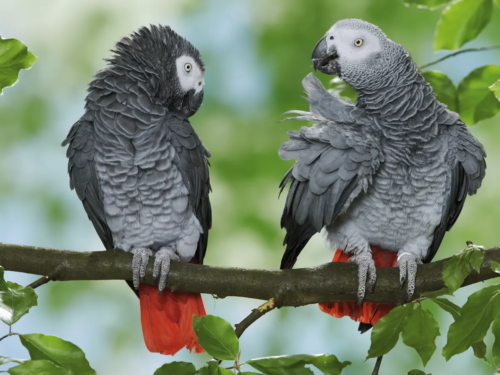
Conures
Conures are small to medium-sized parrots that are known for their vibrant colour and their playful personalities. Some of the most popular species of conures include the green-cheeked conure, sun conure, and Nanday conure.
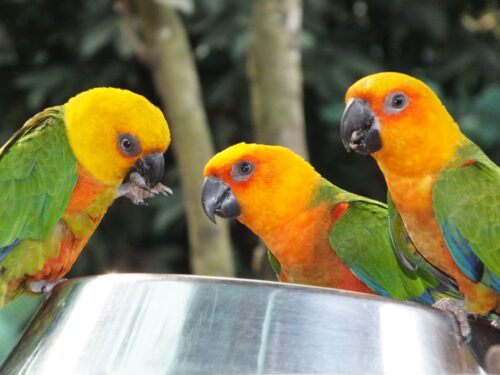
These are just a few examples of the many types of parrots that exist, and each species has its own unique characteristics and traits.
Indian talking parrot
The Indian talking parrot, also known as the Indian ring neck or rose-ringed parakeet, is a popular species native to India and other parts of Asia. They are known for their distinctive green plumage and their ability to mimic human speech.
intelligent and social
Indian talking parrots are also social and intelligent birds that require a lot of mental stimulation and social interaction to thrive. They are playful and curious by nature, and they enjoy toys, puzzles, and other forms of enrichment that challenge their minds.
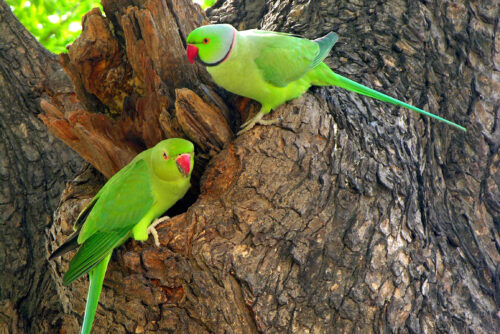
ability to mimic human speech
One of the most unique features of the Indian talking parrot is its ability to mimic human speech. While not all individuals are able to talk, many can learn to imitate words and phrases with proper training and socialization. They have a clear, high-pitched voice and can often mimic sounds from their environment, such as ringing phones or car alarms.
strong bonds with their owners
Indian talking parrots possess charming personalities and display an affectionate nature, in addition to their remarkable vocal abilities. They form strong bonds with their owners and enjoy spending time with them, whether it’s playing games, cuddling, or simply hanging out.
Overall, the Indian talking parrot is a fascinating and intelligent bird that makes a great pet for those who are willing to provide them with the proper care and attention they require.
- African Grey Parrots
- Amazon Parrots
- Indian Ring neck Parakeets
- Eclectus Parrots
- Quaker Parrots
- Blue Macaw
- Gold Macaw
- Budgerigar (Budgie)
- Yellow-naped Amazon parrot
- Blue-fronted Amazon parrot
- Cockatiel
- Hill mynah
- Senegal parrot
- Timneh African grey parrot
However, it’s important to remember that not all parrots of these species will be able to talk, and that each bird has its own unique personality and abilities. Proper training, socialization, and care are important factors in developing a parrot’s ability to talk.
CAN all types of Parrots talk?
Not all types of parrots can talk, but several species have the ability to mimic sounds and human speech. African grey, Amazon and budgies are among the most famous talkers. However, whether or not a parrot talks depends on a variety of factors, including genetics, socialization, and training. While some parrots may never learn to talk, others can learn a large vocabulary and communicate effectively with their human companions.
What parrotS eat
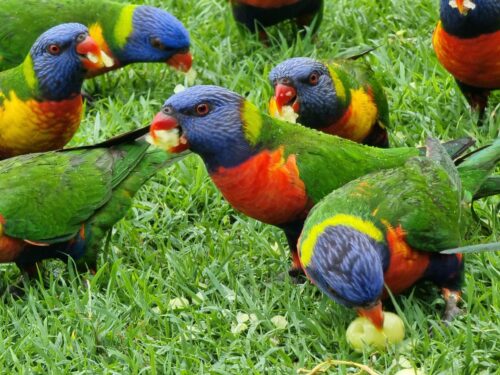
DO PARROTS LIKE CHILLI peppers?
Parrots have been observed to consume chili peppers or other spicy foods in their natural habitat, but it is not advisable to offer them these foods while in captivity due to differences in their digestive systems and diets. This is because captive parrots have different digestive systems and diets than their wild counterparts, and what may be beneficial or tolerable for wild parrots may not be the same for captive parrots.
Parrot Nest
Parrots build nests for breeding and laying their eggs. The type of nest that they build can vary depending on the species, but they generally construct nests from materials such as twigs, leaves, and grass.
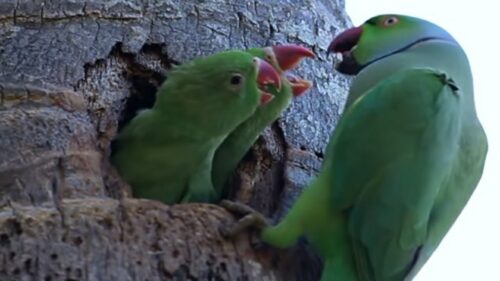
Some species of parrots even create elaborate nests in tree hollows, using their strong beaks to carve out nesting cavities. Once the nest is built, the female parrot lays her eggs inside and both the male and female take turns incubating the eggs until they hatch.
Difference Between Wild parrot and Captive Parrot
| Type | Wild Parrot | Captive Parrot |
| Habitat | They live in their natural habitats such as rainforests, savannas, and deserts | They live in their natural habitats such as rainforests, savannas, and deserts |
| Diet | They have a varied diet that includes a variety of fruits, nuts, seeds, and insects, | Captive birds are usually fed a commercial diet that may not be as diverse. |
| Socialization | They live in flocks and have complex social structures, | Captive birds may not have the opportunity to socialize with other birds and may be kept alone. |
| Exercise | They fly long distances in search of food and shelter | Captive birds may not have the same opportunities for exercise and may develop health problems if they are not provided with enough space and opportunities to move around. |
| Lifespan | They have a lower lifespan compared to captives because they face various threats in the wild, such as predators, diseases, and loss of habitat. | Captive birds can live between 20 and 50 years in captivity with proper care and attention, and a balanced diet from their caretakers |
Overall, while captives may receive proper care and attention from their caretakers, they lack the freedom and natural experiences that wild parrots have in their natural habitats.
How long do parrots live
The lifespan of parrots varies depending on the species, with some living as short as 10 years and others living up to 80 years or more. On average, most birds live between 20 and 50 years in captivity with proper care and attention from their caretakers. Providing a healthy and balanced diet, regular exercise, and a stress-free environment are important factors in ensuring a parrot’s longevity and well-being.